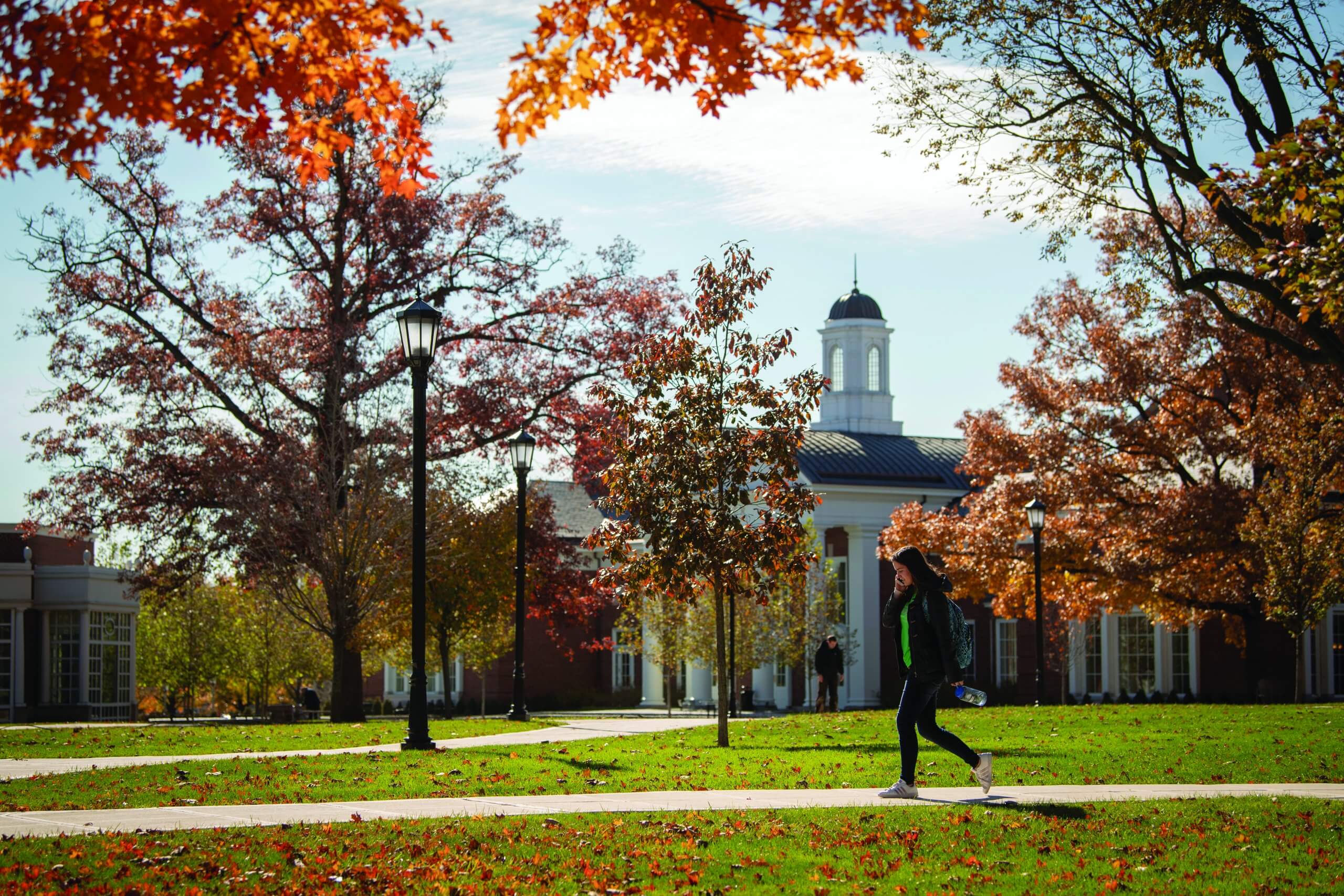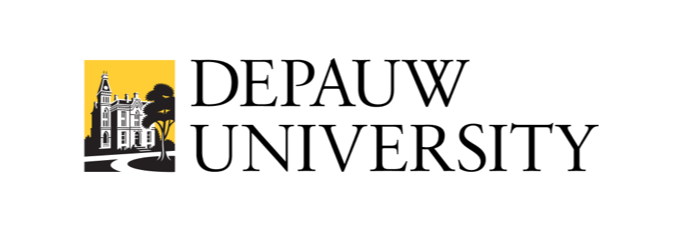During his secondary school days in Ghana, Papa Kobina Van Dyck didn’t have the opportunity to study the arts, humanities, or social sciences.
The opportunity only came when he went to study abroad in the US.
Through his science-based Bachelor’s degree at DePauw University, Papa majored in cell and molecular biology, and minored in statistics and physics. In between, he took philosophy, art history, archaeology, studio art, and history classes too.
“With a liberal arts education, the world is your oyster,” he said.
“I’ve learned how to think critically and deeply about many different subjects and apply them to the real world.”
As Indiana’s top-rated liberal arts university, DePauw offers various majors and minors encompassing the sciences and humanities. These are disseminated via multiple academic centres, including ethics, media, entrepreneurship and technology.
When you choose DePauw, you receive the Gold Commitment that guarantees a 100% graduate success rate. That means if you’ve not landed a job within six months of graduation, the university and its partners will either grant you a full-time entry level position or an additional semester without tuition fees.
Small classes. Big ideas
The US is a leading destination for many international students who want to transform their dreams into reality.

Source: DePauw University
One out of every four startups individually valued at US$1 billion or more in the US are founded by former international students, according to data by NAFSA, the Association of International Educators. A 10% increase in international graduate students in the US increases the number of patent applications in the country by 4.5%, World Bank economists found.
At DePauw — with its myriad of exposure and experience — its students are in the running to be part of these impressive statistics.
Junior Kandimire from Zimwabwe chose DePauw for its tight-knit community. The Sociology and Religious Studies student believes that the more teacher-student interaction one gets, the better one’s learning would be.
“I wanted to be in a community where other students, professors and people know me by my name. It really helps me to develop a sense of belonging,” the 24-year-old said.
“Being an international student, I had to learn how to adapt to the new ways of learning and the professors were patient with me and very supportive. They would acknowledge as well as eager to learn about different aspects of my culture.”
Since joining DePauw, Junior has taken part in three summer internships in different countries.
“These internships exposed me to gain a real-world understanding of working in various roles that are related to my area of interests,” she said.
Papa too has worked in different research labs on campus to bring his ideas to life.
“I will be starting my PhD next fall. DePauw University has equipped me with the skills to be ready for graduate-level coursework,” the DePauw Science Research Fellow said.
“My student advisors have also helped me to think about my post-graduation goals since first year and map out a four-year study plan to reach my goals. I owe my success to the guidance of my advisors and the Hubbard Center for Student Engagement.”
Research that makes a difference
Sharon Crary chose to work at DePauw University as she was “extraordinarily impressed” by its students and faculty.

Source DePauw University
Until today, that first impression remains.
“The most rewarding aspect of working at DePauw is the opportunity to have a positive impact on the lives of students. I love working with them and helping them develop their confidence and reach higher than they ever dreamed,” she says.
The Director of Global Health Programme and Chemistry and Biochemistry Professor also takes pleasure in seeing students’ research projects take flight.
For instance, students Sam McCarty and Ayo-Oluwa Laleye spent their summer in DePauw’s science labs to conduct experiments on cryoprotection — keeping things from freezing.
Under their professor’s supervision, the two aspiring physicians used minuscule droplets of water, a superconducting magnet that functions like a “humongous Thermos,” spectroscopic instruments and homemade dry ice to tease out information about sugar’s effects on freezing tissue.
Their work could have applications in various areas, from shortening the life of destructive pine bark beetles to extending the life of frozen meat and protecting human tissue from frostbite.
“At DePauw we teach students to grapple with complex questions that are not easily answered through the lens of just one discipline,” she said.
“Our students bring concepts they learned in other courses into their work in my courses all the time. And they will continue to do that in their professional lives.”
From day one, you’re equipped to tackle the rational, quantitative sides of multidimensional problems facing society, while monitoring the ethical ramifications of your decisions.
Sharon has also conducted real-world research of her own that has benefited DePauw’s students during the COVID-19 outbreak.
During her work with the US Centers for Disease Control (CDC), she was part of the response team for the Ebola epidemic in Uganda. The knowledge and practical skills Sharon gained are helping steer the university through the current pandemic.
“In concert with my liberal arts colleagues, we have stayed one step ahead of this virus, keeping our campus and community safe,” she says.
It is experienced and professional leadership like this that inspires international students like Juniour and Papa to tackle future societal challenges.
Papa said, “I am very confident that if I am given any task or any problem to solve, I will be able to, because of everything I’ve learned from the professors at DePauw.”
Follow DePauw University on Facebook, Twitter, Instagram, Snapchat and YouTube
Like this? Then you’ll love…
Why employers love liberal arts graduates
Meet the liberal arts graduate turned entrepreneur bringing campus tours to life











